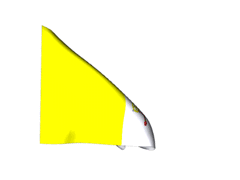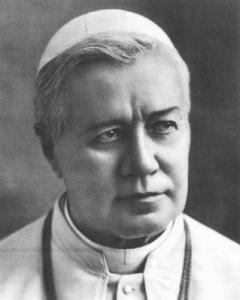Daily Archives: November 29, 2010
The Seven Sorrows Of Mary
I am not a mother (neither a woman, come to that), so I can’t really tell.
Still, I can imagine. I can imagine that I am a mother in the bliss of newly found maternity, a joy without equals.
But then I imagine that when the child is just a few days old, I am informed by a very reliable person that this child is going to undergo great suffering and a painful death. How would it feel? A short time later, I must leave my home in the middle of the night, precipitously fleeing those who want to murder the child. Some years of relative tranquillity go by (during which, though, I have never forgotten the fateful words of Simeon) and one day, I discover that through a misunderstanding my twelve years old child is missing, somewhere in a great city far away from me. Then I return to where I last have seen him, every hour a nightmare and slow death; looking for him without success, for days.
Further years go by, until the now ancient words of the old man in the temple take meaning and form. My own and only child is – after being whipped almost to unconsciousness – made to carry the instrument of his own torture and stumble under his weight. Enough? No, not enough. I see my child savagely nailed to the cross, undergoing a slow and painful death in front of my very eyes. I see him dying, then have to endure the excruciating pain of having the cold dead body of my own child in my arms and to suffer his deposition on a tomb.
I am not a mother and I can’t really know how it would feel. But I can certainly try, and it takes my breath away. Most mothers would prefer to die and call themselves happy, rather than to have to endure all this.
At the same time I think of the challenges and problems of my life, problems I sometime tend to, well, rather make worse than they really are and when I compare my problems with those of Mary, I am helped to understand that perhaps my sufferings are not so unbearable after all, and that She who has suffered so much sees my problems and sorrows – even if infinitely less burdensome than hers – with great love and compassion anyway.
At the same time, I know that She is, in virtue of Her Son and in virtue of Her Sorrows, my (and our) Mother too. A mother to whom I can always open my heart in love and confidence, certain of being heard and loved; and a mother whose sorrows naturally sadden me. It is therefore fitting, every now and then, to dedicate ourselves to another Catholic devotion of the past unlikely to ever be mentioned by the friendly, smiling, joke-cracking and oh so nice progressive priest near you.
The Seven Sorrow of Mary is a traditional Catholic devotion by which the faithful briefly meditate (whilst praying or with a short introductory reflection, as in the Rosary) on those fateful seven moments in Mary’s life.
As already explained on a different occasion, the aim (and a main tenet of Catholicism at the same time ) is to unite ourselves to Mary’s and Jesus’ sufferance and at the same time to draw strenght and inspiration to bear the trials that we ourselves have to endure.
It isn’t really realistic to think that grave tests will be taken away from us. We are never going to be given tests we can’t endure, but most of us are going to be tested in some way or other, so don’t bet your pint. The best think to do is to try to grow our spiritual life by lovingly uniting ourselves to Mary’s and Jesus’ sufferance in order to be spared them if this is God’s will, and to be able to endure them and make them bear fruits if, alas, things have been appointed otherwise.
If you follow this link you’ll find a beautiful rendition of the first sorrow this devotion, with prayers and big images to help you stay focused. From there, you’ll be able to click your way to the following ones.
When you have followed the devotions to the end, please stop a moment and bask in the knowledge that once again, in the privacy of your home, a little part of the extremely rich and at times almost forgotten world of Catholic devotions has come back.
Mundabor





















You must be logged in to post a comment.